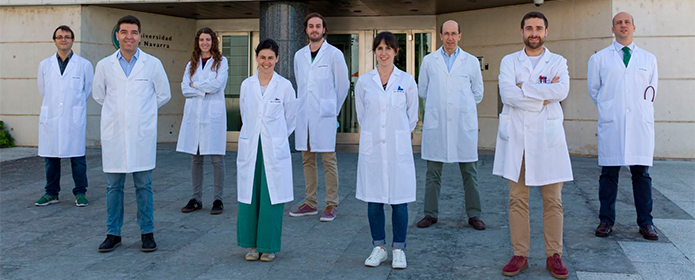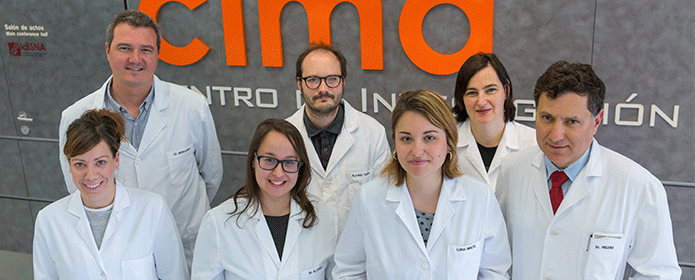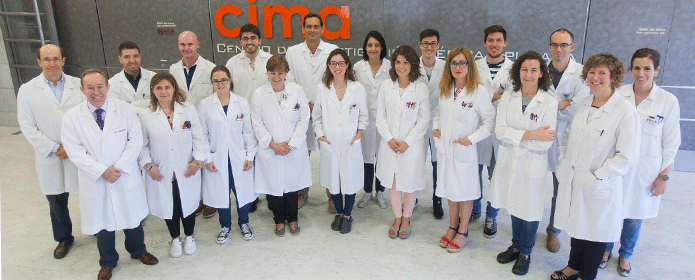Mechanism favoring lung cancer metastasis to bone discovered
University of Navarra researchers show that an immune system protein is involved in tumor cell migration

Lung cancer is the most frequent tumor in the world subject . Nearly 30,000 new cases are detected in Spain each year. One of the factors that marks the prognosis of this disease is its ability to cause bone metastasis. Scientists from the research center Médica Aplicada (CIMA) and from the Clínica Universidad de Navarra have discovered new mechanisms that favor this process.
"Our work studies the role of a part of the immune system, specifically the complement system, in the ability of lung cancer cells to migrate and invade bone. And we have shown that the expression of a receptor of the complement system, called C5aR, promotes bone metastasis of tumor cells," explain Drs. Rubén Pío and Fernando Lecanda, director and researcher principal, respectively, of the Solid Tumors Program at CIMA and coordinators of the study. According to Dr. Daniel Ajona, another of the main authors of work, "by inhibiting this protein at laboratory we found that the ability of tumor cells to migrate to bone decreased. Therefore, this strategy is a very promising proposal for clinical application".
The results have been confirmed in experimental models of lung cancer and in biological samples from the Clínica Universidad de Navarra and the Hospital General Universitario de Valencia. "The preliminary data obtained in patient samples suggest that the higher the expression of this receptor in the primary tumor, the worse the patient's prognosis, i.e., the earlier the progression or death. Likewise, by retrospectively reviewing the samples of patients with bone metastases, we have found that they have more expression of the C5aR receptor," assures Dr. Lecanda. Once the results of metastasis to bone have been confirmed, the researchers are considering studying its involvement in the capacity to invade organs other than bone.
The work of the University of Navarra is part of a project of research integrated in CIBERONC, and has been carried out thanks to the funding, among other entities, of the association Española Contra el Cáncer (AECC). The results have been published in the latest issue of the American Journal of Respiratory and Critical Care Medicine.
Immune system against cancerThe complement system is an element of the immune system that is activated as the first line of defense against the presence of foreign elements in the body. According to Dr. Pío, "the complement system is thought to be part of the defense mechanism against tumors. However, tumors adapt and become resistant to its effects, which generates a dangerous status : the complement system continues to function and promotes chronic inflammation, thus favoring the development of tumors".
programs of study Previous studies by researchers at CIMA have shown that inhibition of the C5aR receptor, combined with immunotherapy, can be a therapeutic target against cancer. "We now want to confirm these results in other types of lung cancer, such as small cell lung cancer. We are also working on new markers that will allow us to predict which patients could benefit from this therapy in order to be able to personalize the treatment as much as possible," the researchers suggest.
reference letter bibliographic
Am J Respir Crit Care Med. 2018 May 1;197(9):1164-1176. doi: 10.1164/rccm.201703-0660OC.




